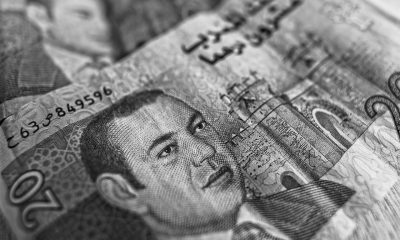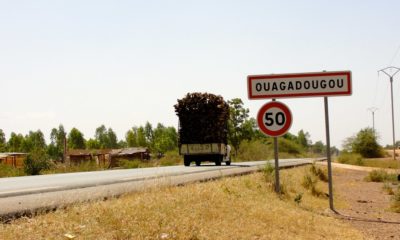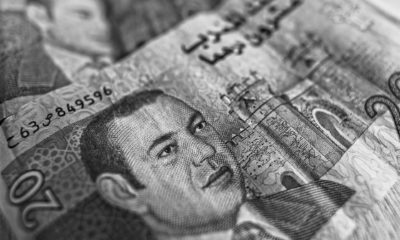Africa
Moroccan Banks Are Struggling in Rankings but Are Driving Africa’s Financial Pulse
Despite their large presence in Africa, Moroccan banks rank low in performance efficiency compared to regional peers, according to Jeune Afrique. While profitability is improving, high dividend payouts and rising bad debts impact their solvency. Still, Moroccan banks remain vital, contributing 20% of banking activity in West Africa and dominating the Top 20 largest African banks.

Although judged to be less efficient by certain rankings in recent months, Moroccan banks remain essential in the development of the continent’s financial industry.
“Less efficient than their African peers, Moroccan banks are now at the back of the pack” in the ranking of the Top 300 best performing African banks. This is what the magazine “Jeune Afrique” says in its 2024 ranking. And let’s make a clear distinction, here, we are not talking about the largest African banks, but rather about the performance of these banking groups.
For Moroccan banks, “their respective profitability is improving significantly, whether in terms of the return on their equity or their operational efficiency,” explains Ranya Gnaba, financial analyst at AlphaMena, quoted by “Jeune Afrique”, but, the publication continues, these banks “remain in this area still far from the standards of the sector in Africa.”
On the solvency side, “their generous dividend distribution strategy”, which sees them paying out “43% of their profits on average in 2023”, penalizes them heavily on this item.
Mixed fortunes of Moroccan banks
According to data from “Jeune Afrique,” Moroccan banks have a credit quality below the average of the sample considered. As an illustration, Attijariwafa bank significantly improved its profitability between 2022 and 2023, both its operating coefficient (44.55% to 40.71%) and its ROE (from 12.01% to 13.59%), but the leading bank in Morocco sees its bad debt rate almost double (from 3.97% to 7.23%).
“Our ranking is very harsh on Moroccan banks, which is quite paradoxical, because if you follow the news, you see that they are doing good results, but if we compare them to the entire sector in Africa, we realize that they have less good results,” says Julien Wagner, responsible for the ranking of the Top 300 of the African banking sector.
Impact and positioning
That said, beyond performance, but rather in size, it is impossible to talk about the banking and insurance sector in Africa without thinking of Moroccan groups. And besides, the latest ranking on the champions of African finance published by “Jeune Afrique” in 2023 confirms this.
Indeed, according to this document, three large Moroccan banking groups are among the Top 20 largest African banks on the continent. And unsurprisingly, on the Moroccan side, it is Attijariwafa bank that comes first, positioning itself in 9th place on the continent. The Banque Centrale Populaire (BCP) is ranked 19th, just ahead of another Moroccan giant, namely BMCE Bank of Africa, which occupies 20th place.
According to this ranking, “the sophistication of the risk management of Moroccan banks has prevented them from being too affected by successive shocks.” These risks come from 15 to 20% of their activity in sub-Saharan Africa, according to the authors of the report, who note however that this is an area where revenues are generated more.
20% of banking activity
In any case, for the national financial sector, this is an interesting indicator, which makes it an almost essential player in certain sub-regions of the continent, particularly in West Africa, where Moroccan banks represent nearly 20% of banking activity.
In recent years, there has been a slowdown in their pace of expansion, particularly towards English-speaking markets, after very good breakthroughs in the middle of the previous decade in countries such as Rwanda and Tanzania. Markets such as South Africa and Nigeria still remain impervious.
Moreover, this can be understood in light of the robustness of the banking players in these two English-speaking countries, the leading economic and demographic powers on the continent.
Indeed, this ranking published by “Jeune Afrique” notes that the South African FirstStrand Group is the largest bank on the continent. Five Nigerian banks are part of the Top 10, which also includes the Egyptian Banque Misr and the Moroccan Attijariwafa bank.
__
(Featured image by Joshua Golde via Unsplash)
DISCLAIMER: This article was written by a third party contributor and does not reflect the opinion of Born2Invest, its management, staff or its associates. Please review our disclaimer for more information.
This article may include forward-looking statements. These forward-looking statements generally are identified by the words “believe,” “project,” “estimate,” “become,” “plan,” “will,” and similar expressions. These forward-looking statements involve known and unknown risks as well as uncertainties, including those discussed in the following cautionary statements and elsewhere in this article and on this site. Although the Company may believe that its expectations are based on reasonable assumptions, the actual results that the Company may achieve may differ materially from any forward-looking statements, which reflect the opinions of the management of the Company only as of the date hereof. Additionally, please make sure to read these important disclosures.
First published in LES ECO.ma. A third-party contributor translated and adapted the article from the original. In case of discrepancy, the original will prevail.
Although we made reasonable efforts to provide accurate translations, some parts may be incorrect. Born2Invest assumes no responsibility for errors, omissions or ambiguities in the translations provided on this website. Any person or entity relying on translated content does so at their own risk. Born2Invest is not responsible for losses caused by such reliance on the accuracy or reliability of translated information. If you wish to report an error or inaccuracy in the translation, we encourage you to contact us

-

 Africa1 week ago
Africa1 week agoTunisia Holds Interest Rate as Inflation Eases, Debate Grows
-

 Fintech3 days ago
Fintech3 days agoRuvo Raises $4.6M to Power Crypto-Pix Remittances Between Brazil and the U.S.
-

 Cannabis1 week ago
Cannabis1 week agoCannabis and the Aging Brain: New Research Challenges Old Assumptions
-

 Biotech3 hours ago
Biotech3 hours agoEurope’s Biopharma at a Crossroads: Urgent Reforms Needed to Restore Global Competitiveness
























